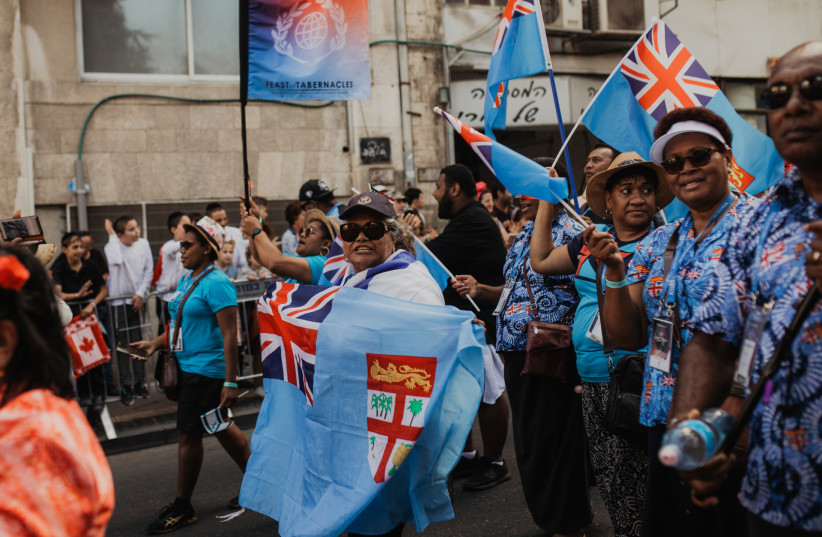A delegation of ambassadors who are permanent representatives of their countries to the United Nations was brought to Israel last week by Ambassador Gilad Erdan, Israel’s permanent representative to the UN, and met on Sunday with President Isaac Herzog.
The group was somewhat smaller than previous delegations, but that may have been due to fears of travel to the Middle East during the current security situation.
No fear of rockets
In introducing the delegation to Herzog, Erdan, a former Likud minister and MK, made a point of saying: “These ambassadors are not afraid of rockets – so they came.”
Erdan noted the huge gap between what Israel can contribute to the world and the bias at the United Nations, adding, “Hopefully these ambassadors will help me fight for the truth when we are back in New York,” Erdan said.
Erdan related that he had been inspired to take up his present position by Herzog’s father, Chaim Herzog “a legendary ambassador to the UN” and former president, and Herzog’s uncle, Abba Eban, who was Israel’s first permanent representative to the UN.

Prior to the meeting – whose members came from the Pacific islands, Asia, Africa and South America – they were addressed by Zvi Vapni, the president’s senior foreign policy adviser, who briefed them on the uncertainty of a lasting ceasefire, due to the militant attitude of the other side. “We don’t see any end in sight,” he said.
He also spoke in neutral terms about the divisions in public life and in the population in general in response to the proposed judicial overhaul, and emphasized that some compromise must be reached “so that we can grow from it.”
What was particularly significant to Vapni was the amount of time and effort wasted in dealing with the challenges of international organizations such as the UN. Vapni said that Israel would like them to stop being a tool of harassment and become a partner in things that they can share with Israel, which is always willing to share its know-how.
Nonetheless, many individual countries, especially those suffering from conflicts, are willing to listen, said Vapni, who in his closing remarks said, “Iran is not only our problem. The world realizes that. Iran puts money everywhere, bringing disquiet and terrorism. We have nothing against Iran or Muslims. We do have something against radical terrorism.”
Acknowledging that anyone can learn a lot about Israel from the Internet, Vapni was adamant that “there is nothing better than coming and seeing.”
Herzog, who chose to listen rather than to speak, quipped: “You’ve seen it all, what else do you need?” He was interested in hearing about the challenges faced by each ambassador’s country. Topics discussed included the universal climate crisis, agriculture, civil war, and the potential for trade.
All the representatives of island states in the Pacific spoke of the challenge of rising water and the fear that if this continues, some of the islands will disappear forever.
Toward the conclusion of the meeting, Erdan urged Fiji’s ambassador, Filipo Tarakinikini, to tell Herzog what he had been told by the president of Fiji when he appointed him early this year. Tarakinikini, who for many years has held various positions at the United Nations, was on the verge of retiring. But when he went home, the president told him to go back to New York and support Israel. “That’s your job,” he told him. “Anything else is up to you.”
